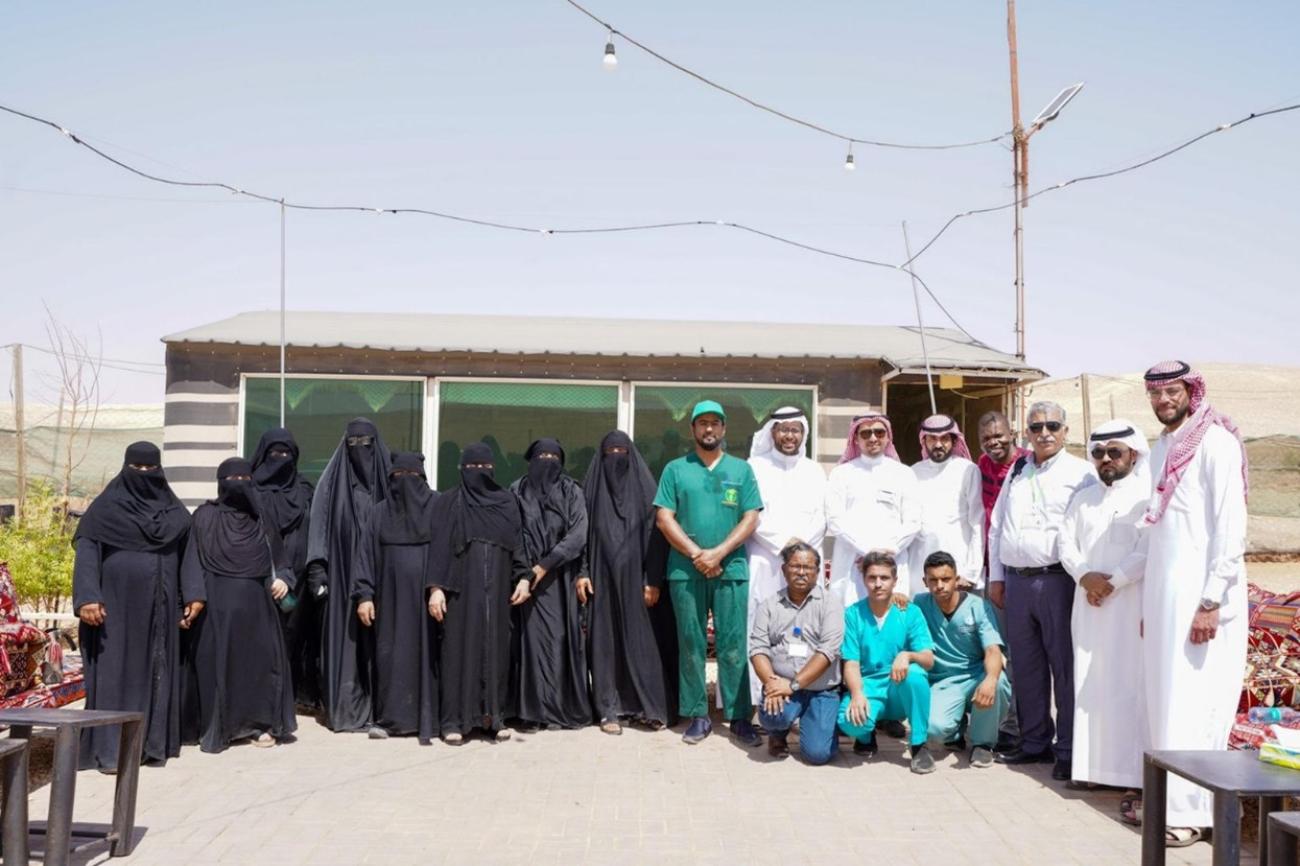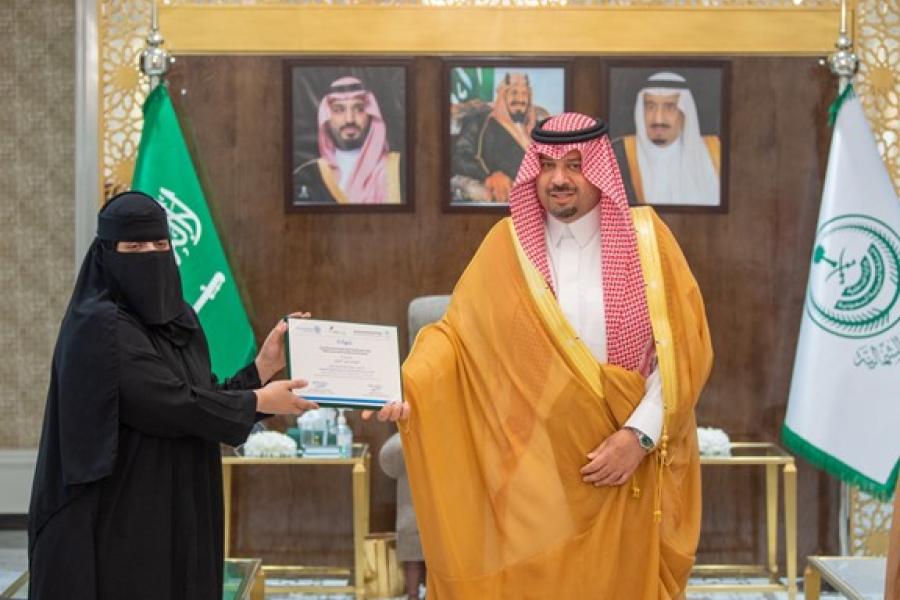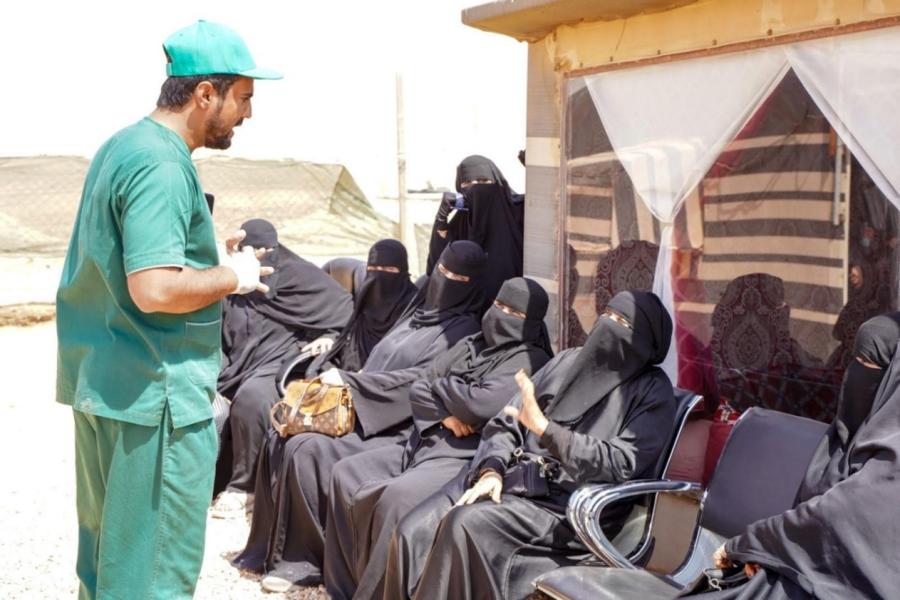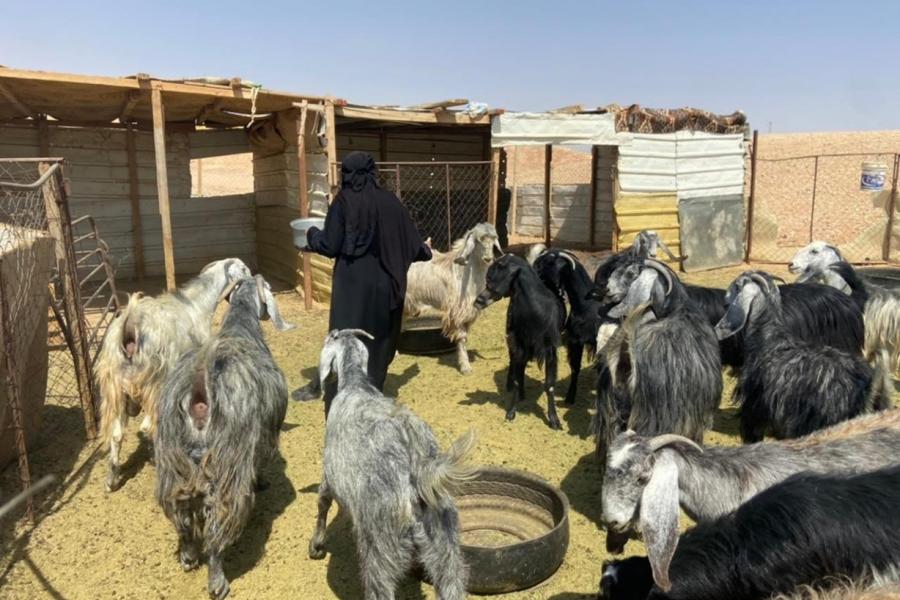Women-Led Entrepreneurship for Livestock Sector Development in Saudi Arabia

A pilot program involved 30 women farmers from the Northern Border region with the participation of Ministry of Environment Water & Agriculture Arar branch.
The livestock component of the Sustainable Rural Agricultural Development (FAO-SRAD) Project of FAO Technical Cooperation Programme in the Kingdom of Saudi Arabia (KSA) focuses on integrated capacity development for better production and productivity, strengthening the value addition, marketing and rural institutions as well as accelerating diversification of income generation for better livelihoods. One such initiative is to strengthen the existing wool and milk value chain across the small ruminant sector in the Northern Border region, through a collective process of intensifying productivity, product aggregation, processing, value addition, marketing and enhancing the income levels, especially targeting women farmers.
The Northern Border region is home to 3 million sheep and goats and it is a major livelihood source for about 15,000 smallholder farmers, mostly the Bedouin tribe, who are moving towards settled farming. Exist generally a huge challenge in terms of lower farm productivity and want of market stimulus for the by-products of the sheep milk and wool, which in many instances are hardly used by the farmers. SRAD project endeavours to leverage the existing small ruminant production systems in the region towards sustainable sheep and goat production and market them through a comprehensive value chain program for sheep milk, wool and live animals. A pilot program involved some 30 women farmers from the Northern Border region with the joint participation of MoEWA Arar branch. The program is being implemented in stages and the selected women farmers have been mobilized into a farmer’s group to create a potential livestock cooperative network and membership. A 4-day orientation organised by MoEWA in collaboration with FAO has shared the best practices of farm management for building a profitable farm business.

In appreciation, His Royal Highness Faisal Bin Khalid bin Sultan, the Prince of the Northern Borders presented the certificates and honoured the participants. He encouraged the initiative and assured extended support. The project has taken a step forward to monitor and facilitate the implementation of the activities by assigning a dedicated community facilitator in the process. A baseline survey of the selected farms is conducted to gather a detailed analysis of the farm status prior to building a micro-level farm management plan and framework targeting individual farms. To strengthen the farm level of activities, individual farmers are provided with advisory services on animal health and farm by a farm production and animal health expert. MoEWA and FAO work hand-in-hand to mobilize the required materials, medicines, vaccines, and small equipment to strive for a successful implementation of the planned interventions. In addition, activities targeting value chain development for mobile milk collection, storage, processing, value addition and marketing continue to progress for better development. Dr Kakoli Ghosh, FAO-SRAD CTA highlighted this initiative is a good model to encourage and attract more women's participation and scale up the sustainable rural agricultural development programme across the Kingdom. She added that the project will accelerate the establishment of a pilot milk processing unit as well as a small-scale wool processing facility. The yield results of the project, hence promote increased productivity and income, strengthened the sheep and goat value chain, empowered women and youth, and strengthened the development of rural institutions and advisory services.




